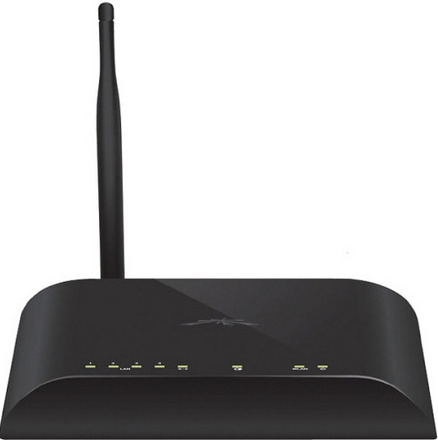Don’t Be Fooled By Phony Online Reviews
lundi 6 juillet 2015 à 05:29The Internet is a fantastic resource for researching the reputation of companies with which you may wish to do business. Unfortunately, this same ease-of-use can lull the unwary into falling for marketing scams originally perfected by spammers: Namely, fake reviews and dodgy search engine manipulation techniques that seek to drown out legitimate, negative reviews in a sea of glowing but fake endorsements.
Perhaps the most common example of this can be found among companies that offer moving and storage services, an industry that consistently ranks in the top 10 across the United States for consumer fraud complaints.
Trust your family heirlooms and other belongings to a moving company without scratching beneath the surface of that glowing review online and at best you could end up paying way more than the agreed-upon price once the company has all of your possessions loaded onto the truck. In most cases, the consumer horror stories about moves-gone-bad also include tales of massive damage to the customer’s stuff — if indeed the customer’s stuff ever arrives.
Even people who are steeped in the ways of the Interwebs can get bamboozled by slick search engine manipulation tricks. Last month I heard from David Matusiak, a longtime reader and information security professional who hired a Florida-based moving company that got five-star reviews from dozens of sites. Unfortunately for Matusiak, many of those “review” sites appear to have been set up and maintained by the people behind the company he hired.
Based in Morrisville, NC, Matusiak had just landed a job in California that wanted him to start right away. So after a couple of hours of reading reviews online for a reputable moving company, Matusiak settled on Full Service Van Lines based in Coconut Creek, Fla. Now, more than 30 days after his truckload of belongs left his home on the East Coast, Matusiak is still waiting for his stuff to arrive in California.
HUGE RED FLAGS
Matusiak said he read page after page of glowing reviews about Full Service Van Lines. Little did he know, the same email address used to register fullservicevanlines.com was used to register many of those “review” Web sites, which naturally list Full Service at the top of their supposed consumer rankings.
Interestingly, if you conduct a simple Google search on Full Service Van Lines, you’ll notice the top review sites — Google and Yelp — have two types of reviews for this company: Very positive and extremely negative, and not much in between.
In retrospect, Matusiak said, the stark disparity in consumer reviews about the company should have been one of many red flags. Another red flag was that the company gave him an estimate for his moving costs over the phone — and refused to send anyone to his home to more accurately and realistically price the move.
The lack of an in-home inspection by the potential moving company is one of the red flags listed at the Protect Your Move site maintained by the Federal Motor Carrier Safety Administration (FMCSA), the federal agency which oversees the moving industry in the United States.
According to Matusiak, Full Service Van Lines exhibited just about every other red flag listed by the FMCSA, including a requirement that some ($1,441.65) of the total moving estimate ($4,225.52) be paid up-front. The other red flag? When the movers arrived on Sunday, May 24, 2015 to load up his belongings, they showed up in a rented Penske truck — not a company-owned and marked fleet truck as displayed on the company’s home page.
Yet another red flag: As soon as the movers had all of his furniture and belongings loaded onto the truck, the foreman — a guy who Matusiak said had a thick Russian accent and offered his name only as “Serge” — said Matusiak’s stuff took up 375 more cubic feet than the estimate had stated, and that as a result the company would be charging him an additional $2,437!
“He said it had to be paid right now in cash or money order or they were going to start unpacking the truck,” Matusiak recalled. “Since this was on a Sunday afternoon, coming up with that kind of cash was pretty impossible, and I couldn’t risk taking all of this stuff off the truck and finding another moving company to get out to my new job in time.”
So, Matusiak said he told Serge to charge the overage to the credit card that Full Service Van Lines had used to fund his initial deposit. After a heated conversation with someone from Full Service, Serge told Matusiak he needed to take a picture of Matusiak’s credit card and driver’s license. That was the last time Matusiak saw Serge or any of his worldly possessions.
Matusiak said he arrived in southern California on May 28, thinking the moving van would be a few days behind. When the promised delivery date of June 1 came and went, Matusiak reached out to Full Service Van Lines to inquire about the status of the moving van. The manager at Full Service assured him his stuff was on its way, so Matusiak decided to stay in a hotel for a few days. On June 7, unable to get a straight answer from his contact at Full Service about the van’s location, Matusiak moved into his apartment, minus any furniture, clothes or bed.
Growing increasingly alarmed, the North Carolina native said he was able to convince a police officer in Coconut Creek, Fla. to visit the company’s offices there, but the officer ultimately came back and said it was clear that this was a contract dispute — not a criminal matter — and that Matusiak needed to take his claims to civil court.
“I didn’t get a straight answer out of them for nearly a month until I asked a Coconut Creek police officer to go visit them, and they finally told him that it had been sitting ‘in their warehouse in Virginia’ since it was taken from my home on May 24th,” he told KrebsOnSecurity. “They promised to send photos of my items to prove that they still existed and had not been destroyed, stolen or sold. So far, they have yet to send me these pictures despite several requests.”
The week after that, Matusiak said, the company told him it couldn’t get in touch with the driver, and that they didn’t quite know exactly where the truck was.
“They said they thought the truck was somewhere near Texas, but that was pretty much when they stopped talking to me,” he said. “The whole thing has been a nightmare, and I’m hoping it can come to some resolution. I doubt most of my stuff will be in good condition should it ever be returned. And it would cost me tens of thousands of dollars to replace most of it, plus there are things that can never be replaced. Most of the work I’ve produced in the past 12 years existed on those computers.”
A LONG, SPOTTY HISTORY
While the Internet can help companies hide a pattern of misdeeds or crooked practices, careful research into public documents about an organization’s corporate history and company ownership can often reveal quite a bit about this activity. And as it turns out, Full Service Van Lines is just the latest venture by a company that appears to have a history of ripping people off and disappearing with their stuff (the company has not yet responded to requests for comment).
Update, July 7, 2015, 12:29 p.m., ET: I received a response from a Jason Stokes at Full Service Van Lines, who said Matusiak was one of a handful of customers who were inconvenienced by a unpredictable and sudden increase in demand for moving services at the height of the summer moving season. Stokes said Full Service was in the process of sending a truck to pick up Matusiak’s things from its warehouse in Virginia, although he noted that the truck first would need to be loaded with other customers’ items and passed through either Florida or New York before heading to California. “This isn’t something that’s normal for us,” Stokes said of the delays. “We’re going to go above and beyond monetarily to make this right with our customers.”
Original story:
Search on “Full Service Van Lines” at the corporation search page of the Florida Department of State’s Web site turns up zero results. But a search for that company using the “fictitious names” lookup at the same site reveals that this company is registered to a firm in Pompano Beach, Fla. called Moving and Storage Accounting.
A search on Moving and Storage Accounting shows that the company is run by a Grace Metzger and a Maxx Socher. A simple Google search on this last individual leads to several interesting results, including a scathing Ripoff Report listing, as well as several blogs documenting consumer experiences very similar to the nightmare that Matusiak has endured.
Among the search results for Socher is an NBC Miami story from February 2014 that recounts the heartbreaking story of a Florida couple who trusted Ryder Moving and Storage — a moving company owned by Maxx Socher’s brother Joshua Socher and Josh’s wife Jodi under the slightly modified company name Storage & Moving Services Inc. in Pompano Beach, Fla — and ran into the same fate as Matusiak. That story notes that the Better Business Bureau got so many complaints that it awarded Ryder an “F” rating.
In addition, the FMCSA fined the company $50,000 for false and deceptive billing, among other violations. And as noted triumphantly by Movingscambusters blog — a site set up by another victim of Ryder who sought to expose the company’s practices — the Florida Attorney General is now suing the Sochers after receiving hundreds of consumer complaints about the company.
Public records searches also can yield revealing results. For example, searching the FMCSA’s database on “Full Service Van Lines,” produces two results, both for companies in Coconut Beach, Fla. The first Department of Transportation (DOT) license number listed is no longer active, apparently because the operator of that license incurred a high number of consumer complaints and safety inspection violations.
The second DOT license listed — issued to a company by the same name at a different suite number — is active but also includes a number of consumer complaints about final charges and lost or damaged shipments. Oddly enough given this company’s history, the active license for Full Service Van Lines (which is a DBA of “Dr. Schlepper Inc.”), has yet to receive an inspection from the FMCSA.
Finally, while the Better Business Bureau is hardly the arbiter of which companies are legitimate and which are potentially crooked, the BBB’s consumer complaint listing on Full Service Van Lines fairly well tracks Matusiak’s awful experience.
Matusiak says he’s in the process of documenting his case and sending the supporting evidence to regulators and law enforcement in Florida and North Carolina.
“I’m trying to piece this all together and contact relevant authorities,” he said. “It is complicated by the nature of being in multiple states. Each office I contact merely asks me to get in touch with another state. It looks like I’m at the will of this company and can only wait. Without broader attention I doubt they will do much and they may close this company before I can take any legal action.”
Matusiak told me that in hindsight, he definitely should have spent more time investigating the history of Full Service Van Lines and its owners. But he said he doubts most consumers would do that before-the-fact.
“I certainly didn’t think that all of the review sites would be run by them,” he said. “But also, I don’t think the average consumer could or should have to do all this research on federal and state filings just to find out if a company is legitimate.”
Whether consumers should have to do this or not is debatable, but it seems fairly clear that there is simply far too much money to be made in moving scams and far too few consequences for people engaged in this type of fraud.
For example, several states have begun cracking down on “reputation management” and “search engine optimization” (SEO) companies that engage in writing or purchasing fake reviews, but the fines being enforced for violations are likely a fraction of the revenues that companies gain by engaging in this deceptive practice. It’s worth noting that Full Service Van Lines’ home page says the site was created by a company called Affordable SEO Miami, a reputation management firm that lists as its address the same location as Full Service Van Line’s license with the Department of Transportation.
I hope it’s clear that consumers investing in high-dollar services would be wise to spend some time using the resources available to look up public records on companies before doing business with them. True, it is easy even for computer-savvy people to get snookered by fake reviews and search engine manipulation tricks, but public records can be powerful tools in the hands of the wary consumer. Caveat emptor!








